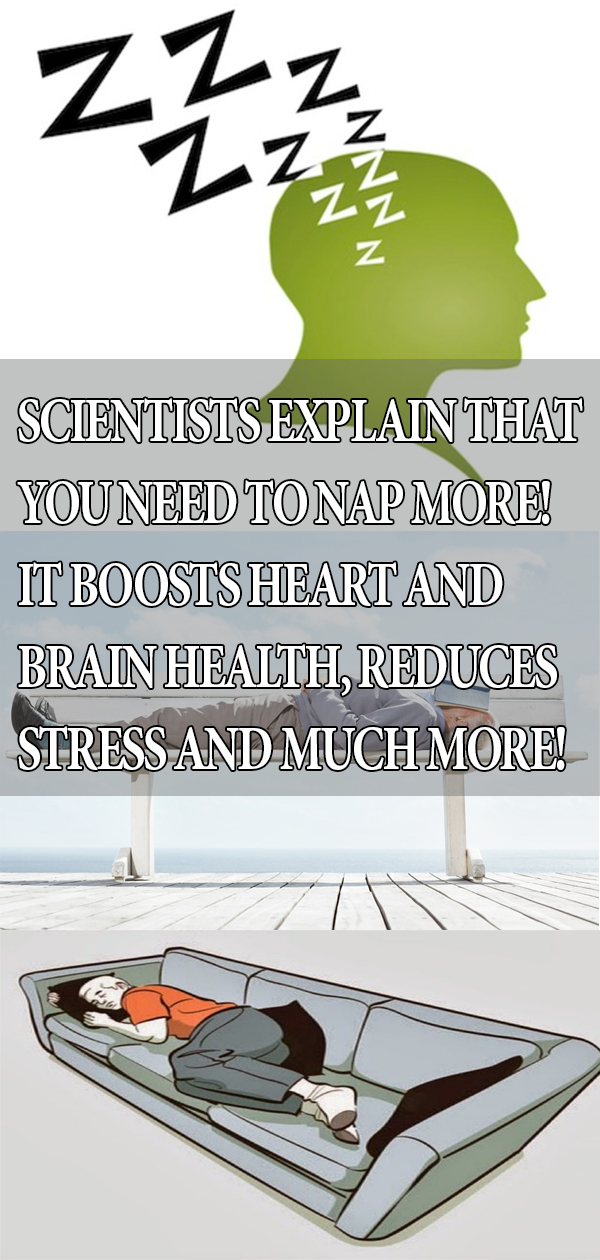Finally, the benefits of quick daytime naps are recognized and valued again.
What is definitely a fact is that our modern society is sleep deprived, so such power naps can possibly alleviate our so-called sleep deficits, as they can boost our brains, and improve our problem-solving skills, verbal memory, perceptual learning, object learning, and statistical learning.
Napping was found to improve reaction time, help with math, and logical reasoning, improve mood, and treat fatigue. It is also excellent or the heart, stress, weight management, and blood pressure.
According to the National Sleep Foundation, naps can be typed in three different ways:
— Planned napping (also known as preparatory napping) involves taking a nap before one actually gets sleepy. This technique can be used to prevent tiredness and fatigue, or when one knows that he will be up later than the normal bed time
— Emergency napping occurs when one suddenly feels very tired and cannot go on with the activity he was engaged in at that time. This nap type often helps to treat drowsy driving or fatigue while using heavy and dangerous machinery.
— Habitual napping is a routine practiced when a person takes a nap at the same time each day. Young children usually fall asleep at about the same time every afternoon, or adults take a short name every day after lunch.
One Greek study found that adult men who took an afternoon nap at least three times per week were 37% less likely to die from a heart-related disease compared to those who never take a short afternoon nap.
Taking a nap ( siesta) after lunch is a custom in many countries, and all of these countries have a lower rate of fatal heart attacks. On the other hand, afternoon naps are not advocated in the U.S. and the UK, where heart attacks are the leading cause of death.
Napping apparently offers numerous health benefits, including improved heart health, stress relief, improved memory, enhanced memory and cognitive performance, increased alertness, and improved relaxation.
Napping has amazing psychological benefits, and a short nap can be a pleasant luxury, a mini-vacation, time that will relax the body and mind and boost rejuvenation.
A groundbreaking 1995 NASA study evaluated the effects of napping on 747 pilots, and a part of them was allowed to take a 40-minute nap every day. The findings revealed vigilance performance improvements from 16% in median reaction time to 34% in lapses compared to the No-Rest Group.
Also, another 2008 study showed that naps are better than caffeine in improving verbal memory, motor skills, and perceptual learning.
Apparently, even a very short nap has its benefits, but the length of a nap determines the benefits you will experience, as follows:
20 Minute Nap – It enhances memory, mental alertness, and motor learning skills.
20 To 30 Minute Nap – It boosts creativity and boosts memory.
30 To 60 Minute Nap – It enhances decision-making skills and memory
60 To 90 Minute Nap – It ensures REM (Rapid Eye Movement) sleep, so it is the most beneficial nap type. It helps you reset the brain, and has a dramatic effect on the problem-solving skills.
Therefore, we can all benefit from napping during the day. However, if you suffer from some sleeping disorders, it might not be wise to take a daytime nap since it might interfere with your ability to fall asleep at night.


